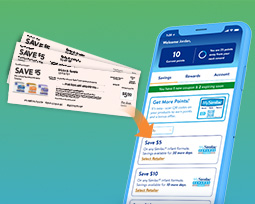-
Search
-
Login
-
My Cart
From crying to using facial expressions, your baby starts learning how to interact with their new world from birth. Expressions like these in their early days are an important part of social and emotional development that will change and improve as they grow.
During their first year, you’ll see your baby develop healthy social and emotional skills, such as interacting with others, establishing relationships with family and friends, and responding to others' feelings. And, there are things you can do to help them along the way.
Each baby is different, but there are general rules of thumb as a baby develops from birth to year 1.
In their first month, your baby will start showing grins and grimaces. Around month 2, they may have mastered the social smile, enjoying the attention it draws. By the time they’re a few months old, your baby should enjoy playing with familiar people, trying out their growing communication skills. For example, they might smile at their reflection, scream to signal annoyance, and show favoritism for certain people and toys. This growth could also include showing fear in new situations—but with your help, they will learn to adapt to these issues, too.
As with all aspects of your child’s development, there are ways to help your little one blossom in their social and emotional skills. We’ve compiled some of them here.
Research tells us that responding in a timely manner to your baby's needs increases their feelings of security and trust. Over time, this will build a bond and instill confidence that will often help them soothe themselves without your help.
Through observation, you’ll develop an important understanding of your baby's unique character traits and behavioral style that will enable you to best respond to their specific needs. For instance, an irritable baby might need cuddling or distraction to refocus energy, while a shy infant might need time to watch from a distance before becoming directly involved with others.
When your baby turns away or gets fussy, take a short break from the activity you were just doing.
Around month 5 or so, your baby will recognize certain people, yet may fear those who are not familiar. To ease their apprehension, plan new introductions only when they’re well rested, healthy, and full. A comfort object, such as a stuffed animal or blanket, may help them feel secure.
Separation anxiety is a common fear that typically appears at 6 to 8 months, when your baby realizes you can “disappear” at any time. Help make them feel more secure by turning the concept of your absence into a game.
Start by walking away from your baby for a few seconds and increase the time apart a little at a time. Another tactic is to allow them to crawl into another safe area of the home and then wait a minute or so before following. They’ll start to learn that being alone isn’t a terrible thing. When the time comes to leave your baby with someone else, help soften the transition by not leaving the instant the other person arrives.
When your baby is about 12 months old, stand beside them in front of a mirror and point out different body parts such as your arm or their nose. Then encourage your baby to try it. Move in and out of the reflection for a game of peek-a-boo and lead your baby in an activity of making faces in the mirror that represent various emotions you suggest.
Although there won't be much social interaction yet, the practice of having your baby spend time with other babies will help build a strong social foundation for the years to come.
Join MySimilac™ Rewards for up to $400* in benefits and support throughout your journey.
* Offers may vary and are provided by Abbott and its third-party partners. Additional terms, conditions, and restrictions may apply. Offers may be subject to additional shipping and handling fees. Visiting participating healthcare facilities may be required to claim select offers.

† Submit registration to read details.

† Submit registration to read details.

You’re just a few Clicks away from enjoying the convenience of digital savings from MySimilac™ Rewards.